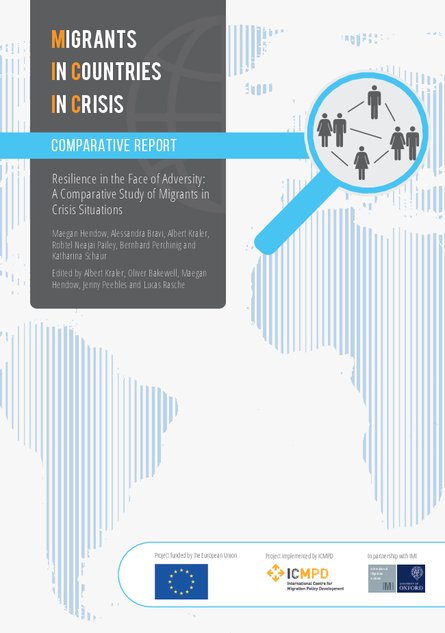
The report “Resilience in the Face of Adversity: A Comparative Study of Migrants in Crisis Situations ” is based on six case studies conducted across the globe on crisis situations in migrant host countries: Central African Republic, Côte d’Ivoire, Lebanon, Libya, South Africa and Thailand. The research, conducted by the International Centre for Migration Policy Development, the International Migration Institute of the University of Oxford, and local research partners, has collected and analysed the experiences and knowledge of over 650 migrants, family members of migrants, civil society organisations, intergovernmental organisations and government authority representatives who were interviewed across twelve different countries. The six case studies cover a spectrum of crises – from public disturbance to natural disaster to armed conflict – thereby highlighting the diverse experiences and needs of migrants during a crisis situation, as well as the varied ways institutional and other stakeholders respond to their needs.
The study points to the need for better and contextualised understanding of crises and migrants’ experiences, as well as the need to improve (and coordinate) international responses to migrants caught in crisis situations. Crises can produce a wide range of impacts, based not only on how they are handled by state and international actors, but also on the nature of the crisis, the environment leading up to the crisis and – significantly – how (and at what level) migrants’ engage their own agency in response to the crisis. Despite the wide range of crisis outcomes, the research also found that across the board, long-term responses to displaced persons – particularly returnees – was lacking and has seriously hindered migrants’ recovery in the years following the crisis.